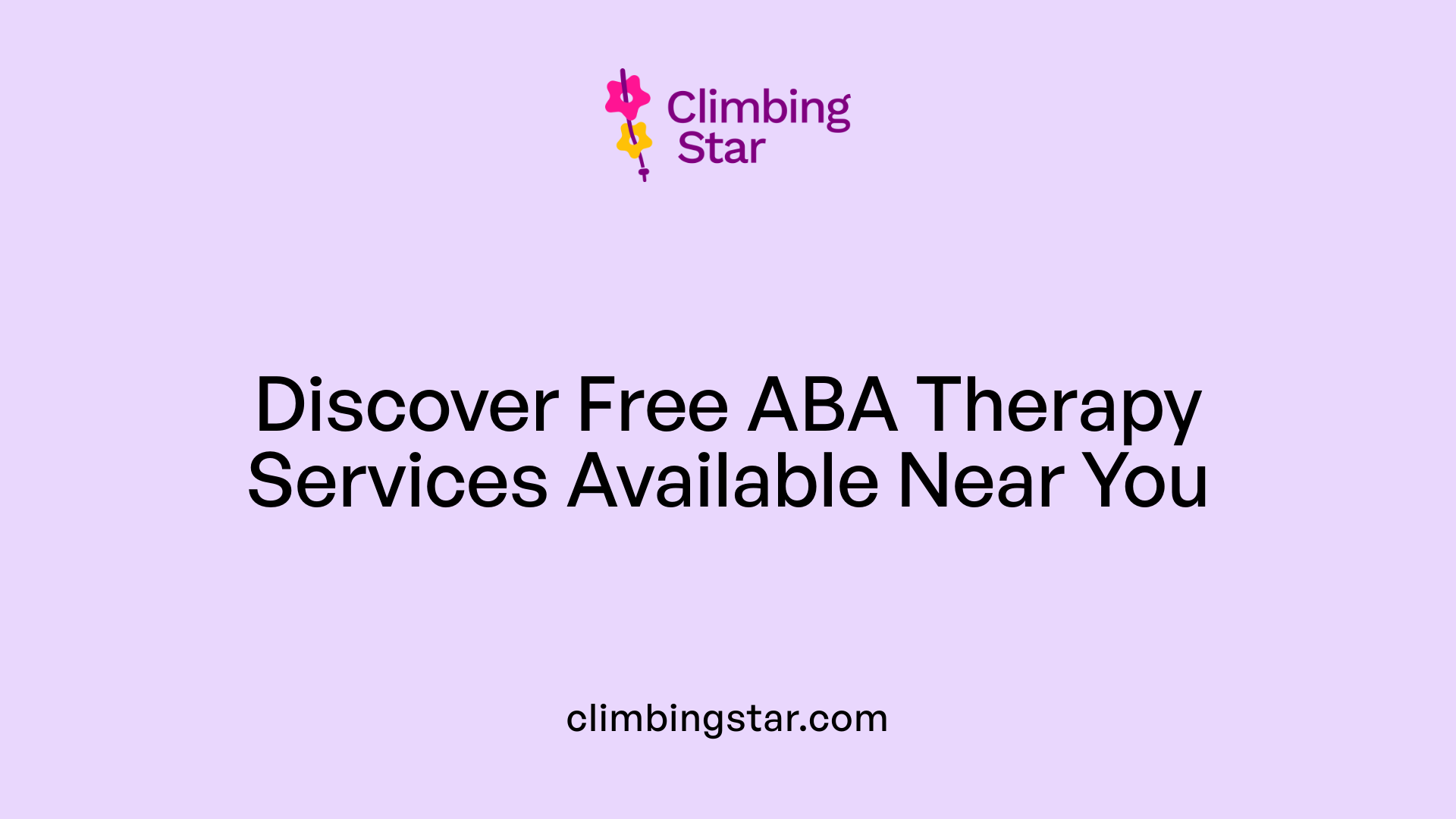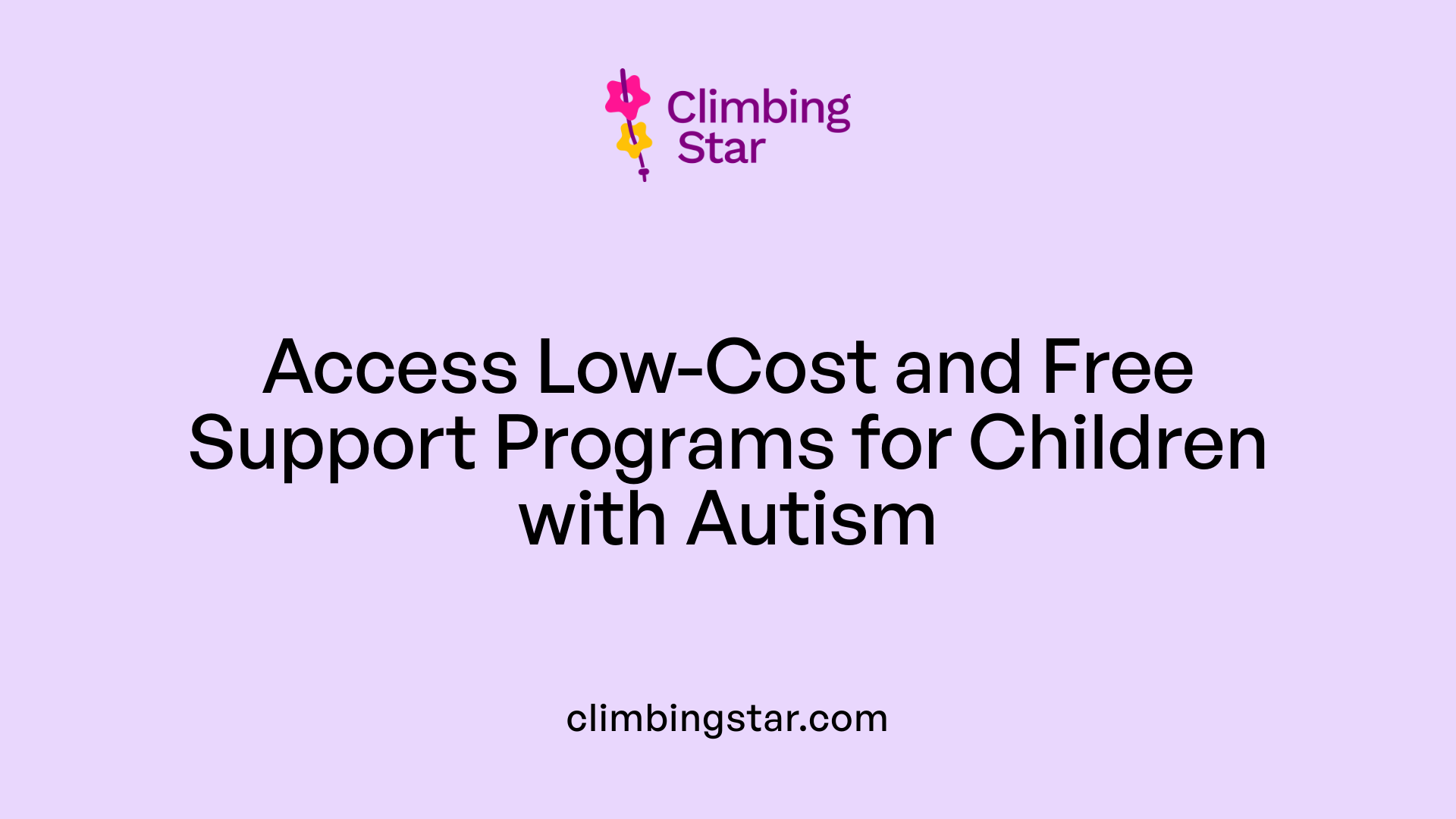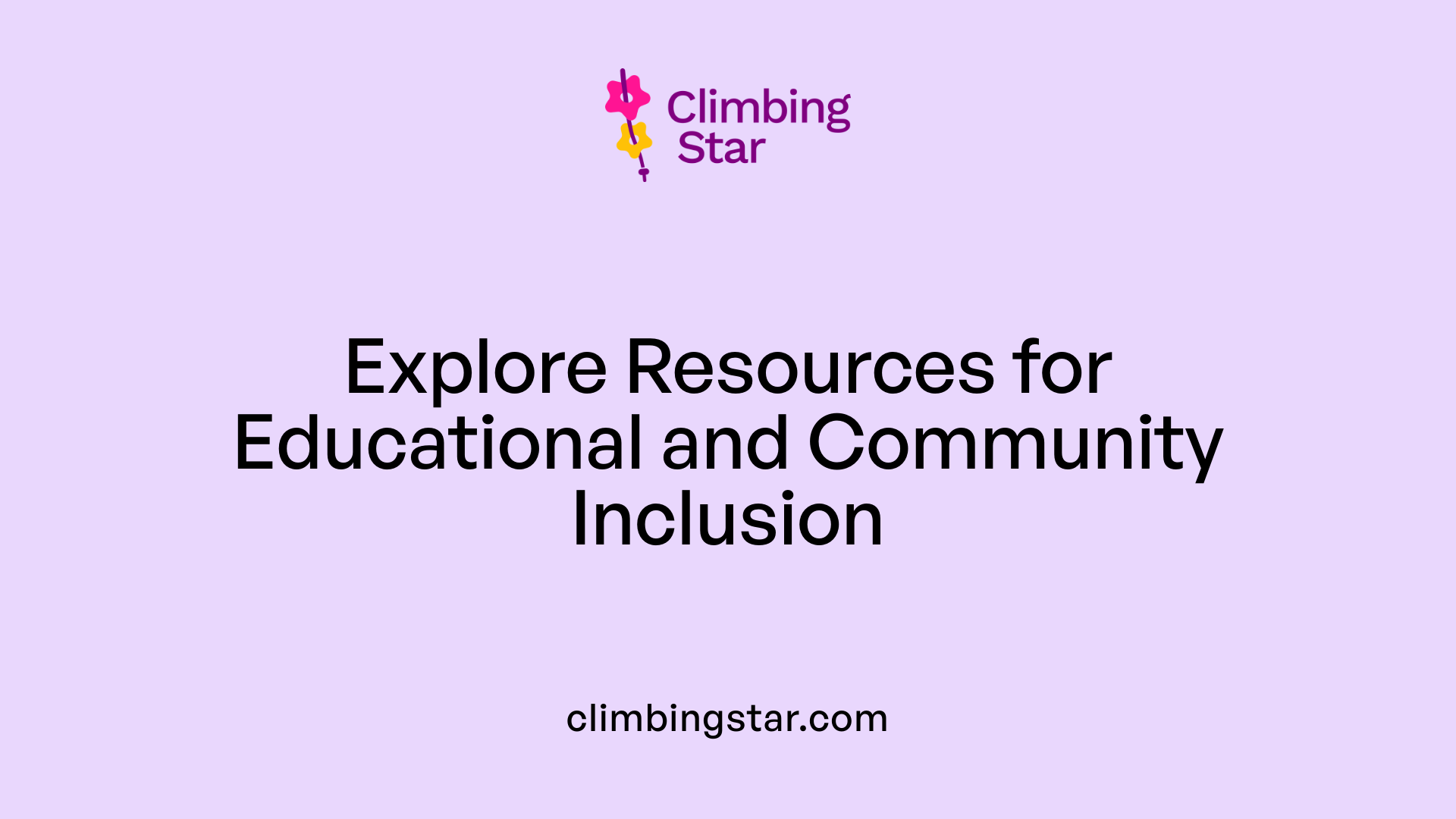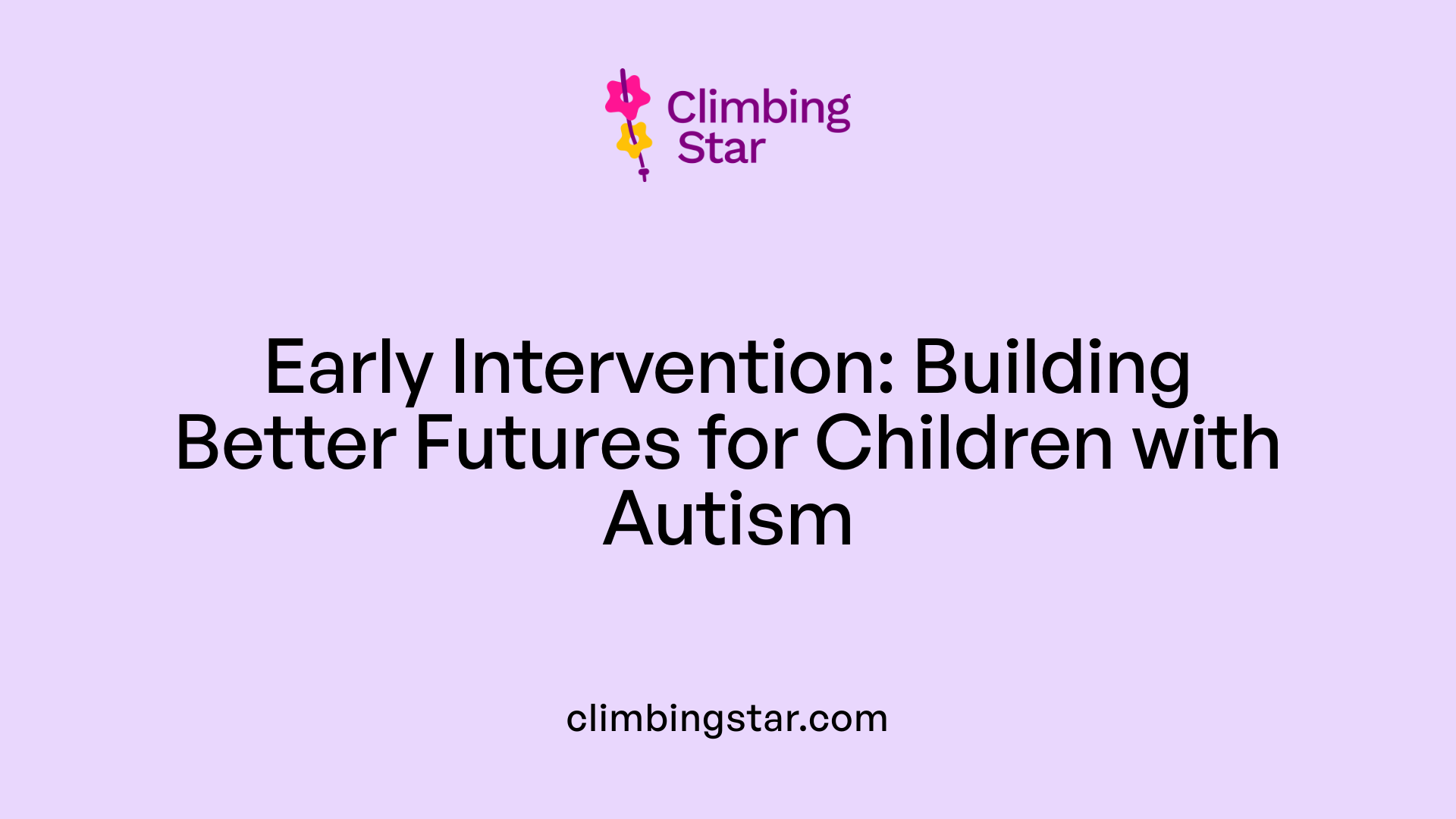Empowering Families Through Accessible Autism Resources and Services
For families with children diagnosed with autism, accessing effective therapies such as Applied Behavior Analysis (ABA) is crucial. However, the cost of these services can be a significant barrier. Fortunately, numerous programs and resources exist to provide free or low-cost ABA therapy and comprehensive support, ensuring children receive the intervention they need to thrive. This article explores how to access these vital services, what resources are available, and how community programs foster a supportive environment for children with autism and their families.
Understanding Free ABA Therapy Services for Children with Autism

What are free ABA therapy services for children with autism?
Free Applied Behavior Analysis (ABA) therapy services are specialized treatment programs aimed at helping children with autism develop communication, social, and academic skills. These services are often provided at no cost through government initiatives, nonprofit organizations, or insurance programs that subsidize therapy costs. The goal of ABA therapy is to reduce harmful behaviors and increase functional skills, making daily life easier for children and their families.
In many regions, including Connecticut, children diagnosed with autism can access free ABA services via dedicated programs. For example, AccessCNY offers personalized ABA therapy designed to meet each child's unique needs. The Autism Waiver also provides intensive support for young children between 18 months and 5 years old, actively involving caregivers in the treatment process. Additionally, children who qualify for Medicaid’s Children’s Health Services (EPSDT) program, aged 18 months to 21 years, may receive ABA therapy at no cost.
Availability through government and nonprofit programs
Availability of free ABA therapy varies based on location and eligibility. Many states have established programs to ensure children with autism get early intervention services. Nonprofit organizations often partner with local agencies to extend these services, making therapy more accessible.
In areas where government-funded programs are not yet in place, families can seek resources through local health departments or autism support organizations. The focus is on making early intensive treatment accessible and effective, fostering better developmental outcomes for children.
Eligibility criteria and the process of obtaining services
Eligibility for free ABA therapy usually requires a confirmed autism diagnosis by a licensed healthcare professional. Families must often undergo assessments and evaluations to demonstrate the child's needs.
The typical process involves a referral from a healthcare provider, followed by assessments to determine eligibility. Once approved, families work with program coordinators to develop a personalized treatment plan.
| Program Name | Age Range | Services Provided | Eligibility Requirements |
|---|---|---|---|
| AccessCNY | Varies, primarily young children | ABA therapy, communication, behavior support | Diagnosis by a licensed professional, referral from healthcare provider |
| Autism Waiver | 18 months to 5 years | Intensive ABA, caregiver training | Autism diagnosis, developmental assessments, state approval |
| Medicaid EPSDT | 18 months to 21 years | Free/subsidized ABA therapy | Medicaid enrollment, autism diagnosis, provider assessments |
Understanding the process ensures families can navigate available resources and secure necessary treatments for children affected by autism.
Securing Low-Cost and Free Autism Support and Intervention Programs
 Families seeking affordable options for autism support can explore a variety of resources available through local government agencies and nonprofit organizations. These organizations often provide services on a sliding scale or at no cost, ensuring that children and their families receive the help they need.
Families seeking affordable options for autism support can explore a variety of resources available through local government agencies and nonprofit organizations. These organizations often provide services on a sliding scale or at no cost, ensuring that children and their families receive the help they need.
One prominent resource is the network of community-based programs offered by organizations like Autism Speaks. They provide information on financial assistance options such as grants, scholarships, and specialized funding for therapies and communication aids. These programs help bridge the gap between the cost of services and what families can afford.
Government assistance plays a significant role in supporting families. Programs like Medicaid Waivers, Supplemental Security Income (SSI), Social Security Disability Insurance (SSDI), and housing assistance are designed to provide ongoing financial help for eligible individuals. Families can apply for these benefits through local social services or health departments.
Community programs also include parent support groups and educational sessions that promote awareness and reduce stigma. Organizations such as the Asperger/Autism Network (AANE) offer free, community-based activities and support groups tailored for autistic individuals and their families.
To access these services, families should start by researching local resources and benefits programs. Visiting official government websites or consulting with healthcare providers can provide guidance.
Most importantly, connecting with national autism organizations can open doors to additional support options and updated information on funding opportunities.
| Resource Type | Examples | Additional Details |
|---|---|---|
| Nonprofit organizations | Autism Speaks, AANE | Offer grants, scholarships, and support programs |
| Government programs | Medicaid Waivers, SSI, SSDI, housing assistance | Provide financial aid to eligible families |
| Community programs | Parent support groups, education sessions | Free or low-cost local education and peer support initiatives |
Exploring these avenues can significantly ease access to essential autism services without financial strain.
Resources and Supports for Educational and Community Integration
 Children diagnosed with autism can access a wide range of resources and educational supports designed to foster their development and community participation.
Children diagnosed with autism can access a wide range of resources and educational supports designed to foster their development and community participation.
Therapeutic services form the cornerstone of many support strategies. These include occupational therapy, which helps children develop daily living skills; speech-language therapy to enhance communication abilities; and behavioral therapy, such as applied behavior analysis (ABA), to address specific challenges related to autism.
In addition to therapy, many organizations provide specialized educational programs and community activities. These may include after-school clubs, day programs, and inclusive activities tailored to the needs of children with autism. Such programs aim to promote social skills, independence, and inclusion within the community.
Parent training and advocacy resources are also vital. These help caregivers understand autism-specific challenges and navigate educational settings effectively. Support groups, workshops, and legal resources empower parents to advocate for appropriate educational accommodations and services.
For example, organizations like Autism Speaks and the Stanford Autism Center offer directories, resource guides, and local provider contacts. Local chapters of organizations such as the Autism Society, along with state agencies and programs like Easterseals, provide early intervention and community-based supports.
The goal of these diverse resources is to ensure that children with autism receive comprehensive, tailored support across their educational and social environments.
| Resource Type | Services Provided | Additional Details |
|---|---|---|
| Therapy Services | Occupational, speech, behavioral therapy | Focuses on skill development and communication |
| Educational Programs | Inclusion classes, special programs | Promotes learning and social integration |
| Community Activities | Clubs, support groups, recreational activities | Encourages community participation |
| Parent Support & Advocacy | Training, support groups, legal aid | Aids families in navigating systems and advocating |
| Support Organizations | Directories, resource guides | Connect families with local services and programs |
By combining these supports, children and their families can access a well-rounded network that promotes growth, learning, and greater community involvement.
The Role of Early Intervention and Community Education

Why is early diagnosis and intervention crucial for children with autism?
Early diagnosis allows for prompt access to support and therapies that can significantly improve a child's developmental trajectory. Programs such as the Children’s Health Council’s Early Support Program for Autism (ESPA), developed in partnership with Stanford Children’s Health, exemplify how tailored, comprehensive evaluations and therapies can lead to better communication, social skills, and behavior management.
Initiating these services early helps address challenges before they become more ingrained. A multidisciplinary team—including neuropsychologists, speech-language therapists, occupational therapists, and behavior specialists—collaborates to create personalized plans that meet each child's unique needs. These early efforts not only foster crucial developmental milestones but also empower families to participate actively in their child’s growth and learning.
How does community education help in autism awareness?
Community education sessions and parent support groups provided by organizations like the Children’s Health Council play a vital role in spreading awareness and reducing stigma around autism. These initiatives facilitate understanding by sharing information about early signs, available resources, and intervention strategies. When communities are informed, families are more likely to seek timely assessments and support.
Such programs also create a network of peer support, making families feel less isolated and more connected. Sharing experiences and resources helps normalize autism and encourages acceptance, promoting a more inclusive environment for children and their families.
How do partnerships with healthcare providers enhance support?
Collaborations between organizations like CHC and healthcare institutions such as Stanford Children’s Health ensure that children receive expert evaluations and a full range of therapies. This partnership helps streamline access to specialized services, ensuring timely intervention.
Overall, community initiatives and strategic healthcare collaborations work hand-in-hand to foster early support, reduce stigma, and promote the well-being of children with autism and their families.
| Topic | Description | Example | |---|---|---| | Early intervention benefits | Supports developmental skills and reduces behavioral challenges | CHC’s ESPA program involves multi-specialist assessments and therapies | Community education efforts | Increase awareness, acceptance, and resource sharing | Support groups and educational sessions | Healthcare partnerships | Ensure access to expert evaluations and tailored therapies |
Accessing Services: Navigating the System with Professional Guidance
 When seeking support for autism spectrum disorder, obtaining professional assessments is a crucial first step. These evaluations, conducted by licensed specialists such as neuropsychologists, speech-language therapists, and occupational therapists, confirm diagnoses and help tailor interventions to each child's specific needs.
When seeking support for autism spectrum disorder, obtaining professional assessments is a crucial first step. These evaluations, conducted by licensed specialists such as neuropsychologists, speech-language therapists, and occupational therapists, confirm diagnoses and help tailor interventions to each child's specific needs.
Once a diagnosis is confirmed, the next step involves referrals and understanding eligibility processes. Many families access services through programs like Medicaid’s Children’s Health Services (EPSDT), autism waivers, or community nonprofit organizations that offer free or low-cost therapies. Healthcare providers play an essential role in guiding families through these application procedures, ensuring that children meet the necessary criteria to receive support.
Collaborating with healthcare providers, including pediatricians and mental health specialists, is vital for navigating the complex system of autism services. They help facilitate referrals, recommend appropriate interventions, and assist in securing funding or subsidies.
For families seeking free or subsidized autism services, it’s important to know that assessments by licensed professionals are often required to determine eligibility. Many programs—such as Medicaid and local community resources—offer subsidies for early intervention services, including evaluations, therapies, and support programs.
Engaging with local organizations, parent support groups, and community education sessions can further assist families in understanding available services. Resources like the Children’s Health Council also provide comprehensive programs and support tailored to children with autism.
In sum, accessing autism services involves obtaining professional assessments, understanding eligibility criteria, collaborating with healthcare providers, and leveraging community and government resources to ensure children receive necessary support and interventions.
Additional Information: To explore options for free or subsidized autism services, families can search online for terms like 'access autism services free subsidies' to find local programs and eligibility details.
Supporting Your Child’s Autism Journey Effectively
Navigating the landscape of free and low-cost autism services can be complex, but numerous resources are available to support your child's developmental needs. From government-funded ABA therapy programs and community support groups to educational resources and early intervention initiatives, families have options to access essential services without financial burden. Building partnerships with healthcare professionals, engaging with community organizations, and utilizing available subsidies can make a significant difference in your child's growth and success. With the right support and information, every child with autism can receive the care and opportunities they deserve, paving the way for a brighter future.
References
- Autism | CHC
- Financial assistance resources
- Autism grants for families
- Free Programs
- Housing Resources for Autism - Websites and Program
- Children's Autism Program | Texas Health and Human Services
- Connecticut Collaborative to Improve Autism Services
- Services
- Autism Services - Arkansas Department of Human Services






